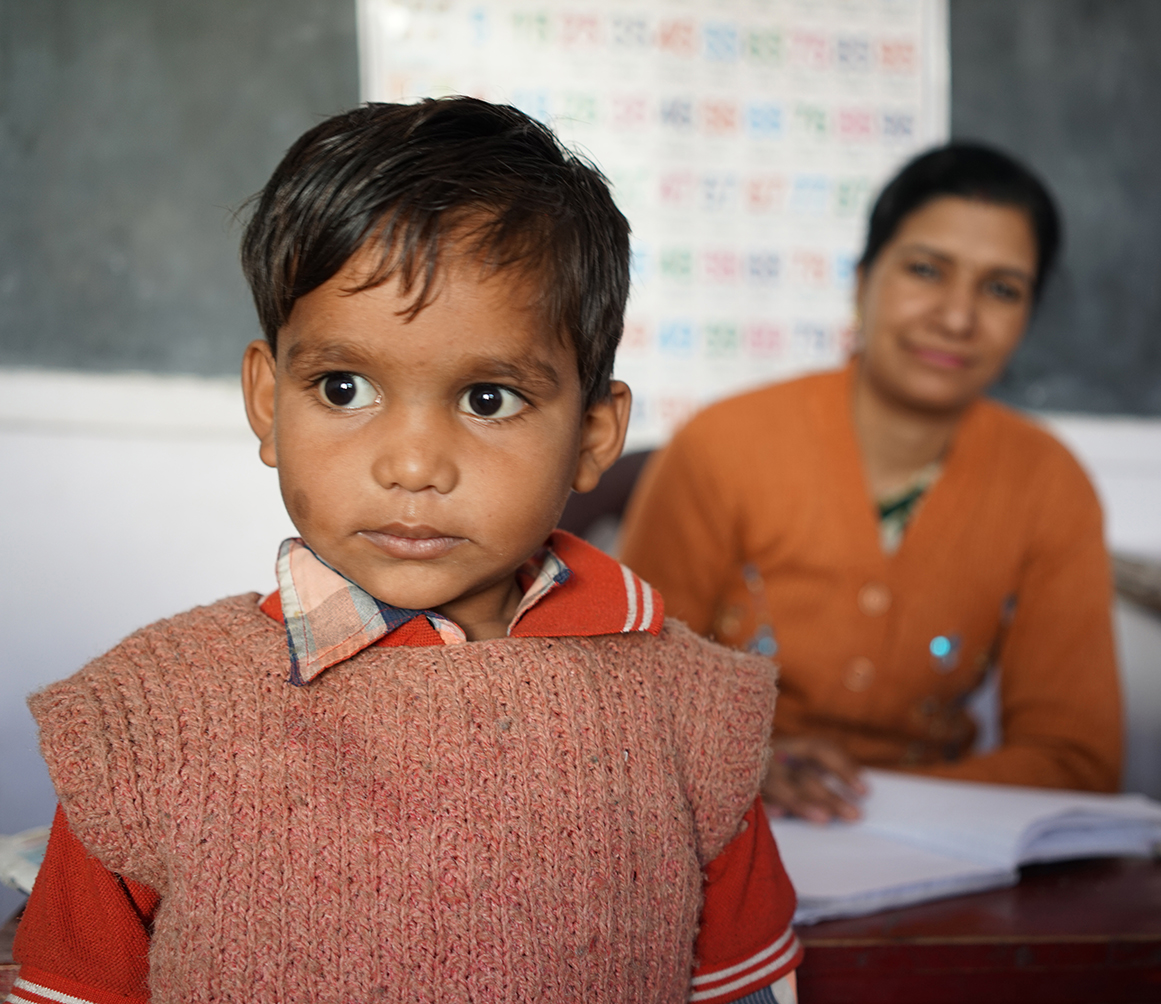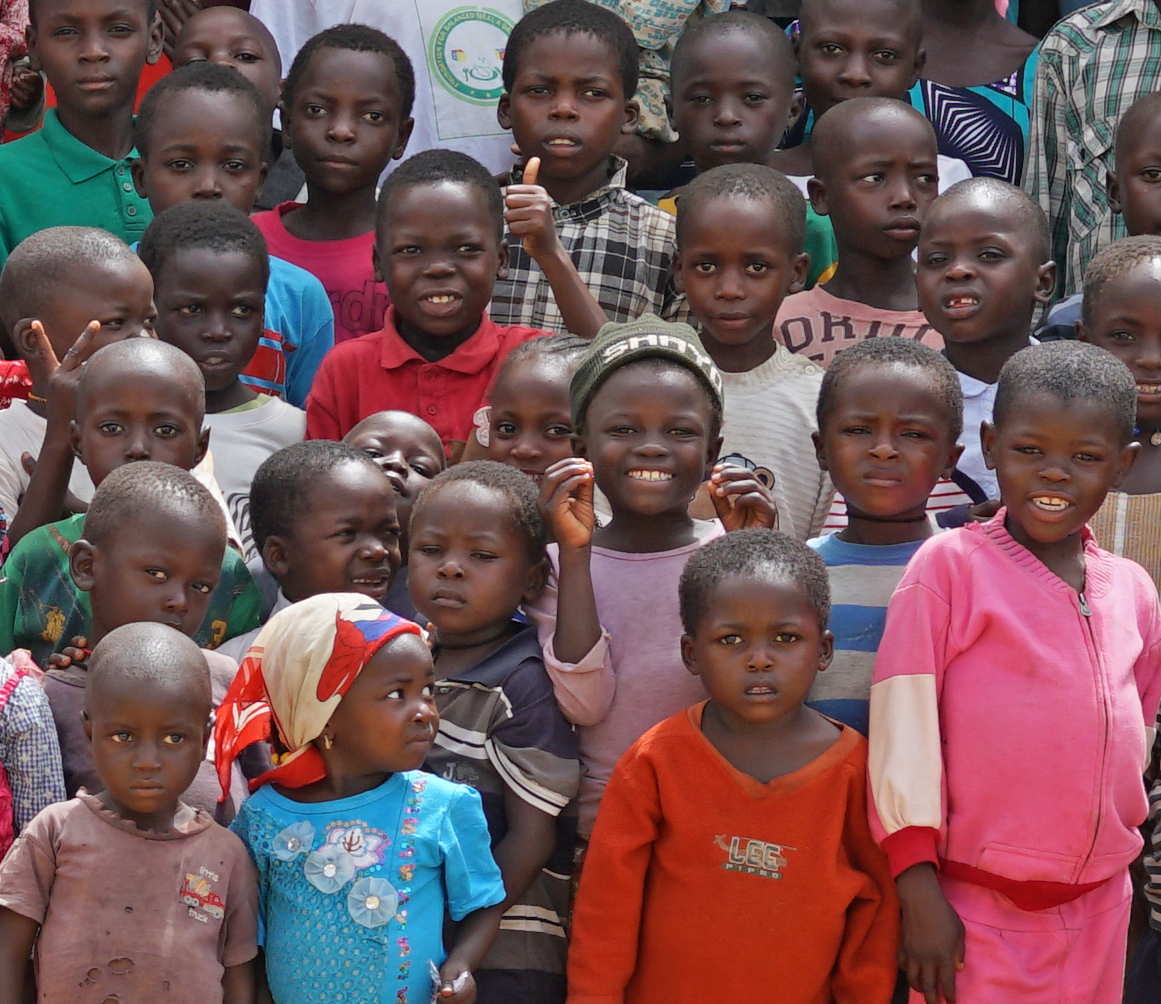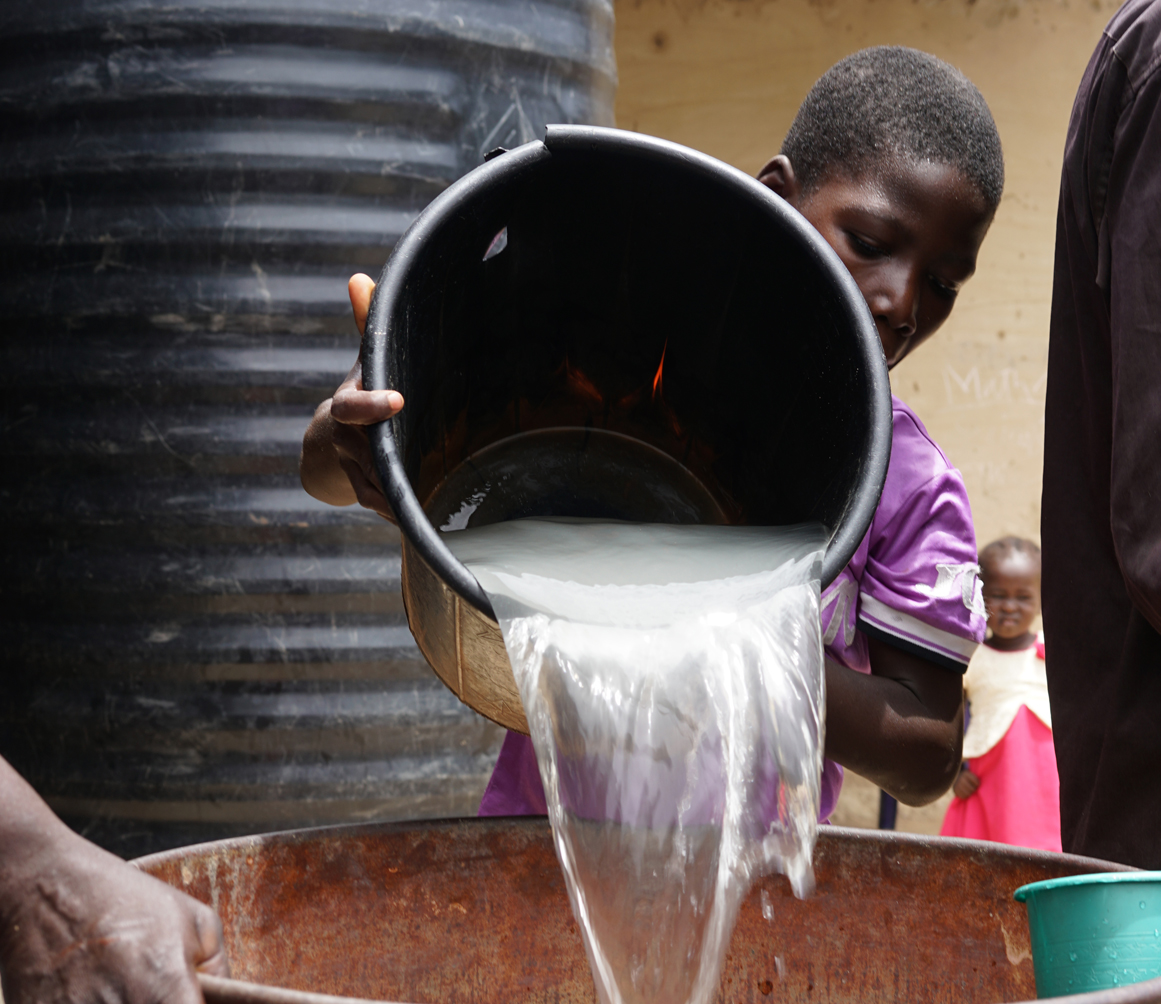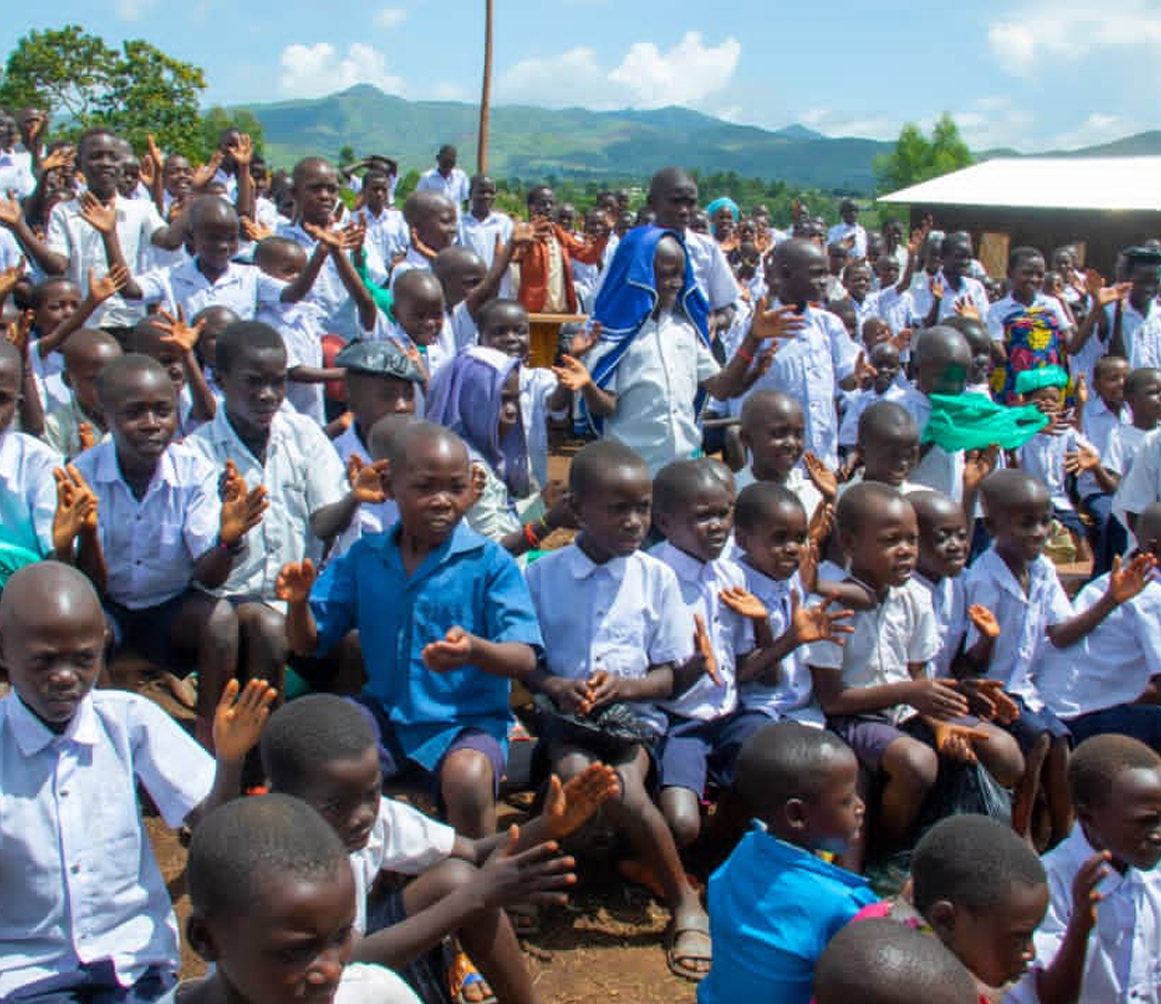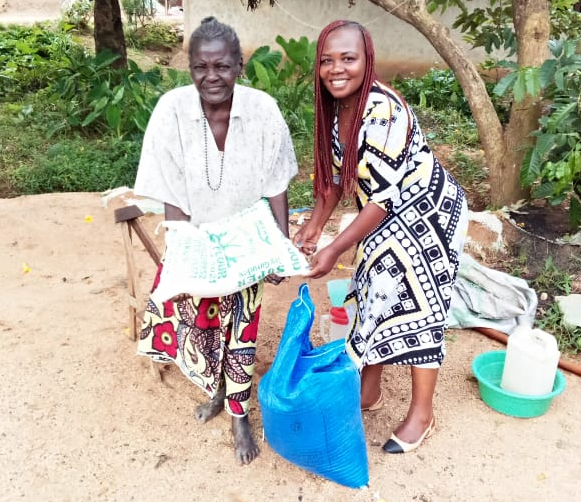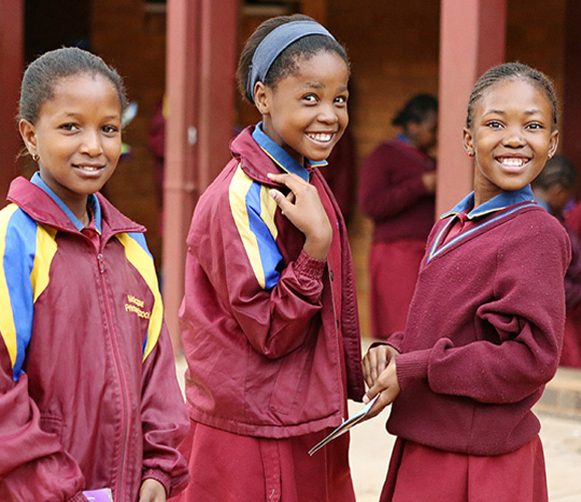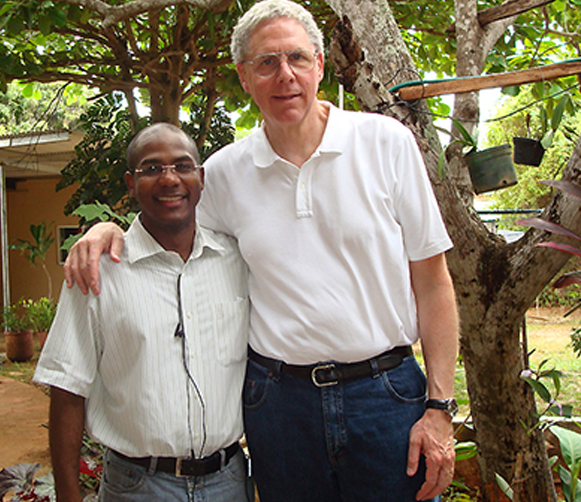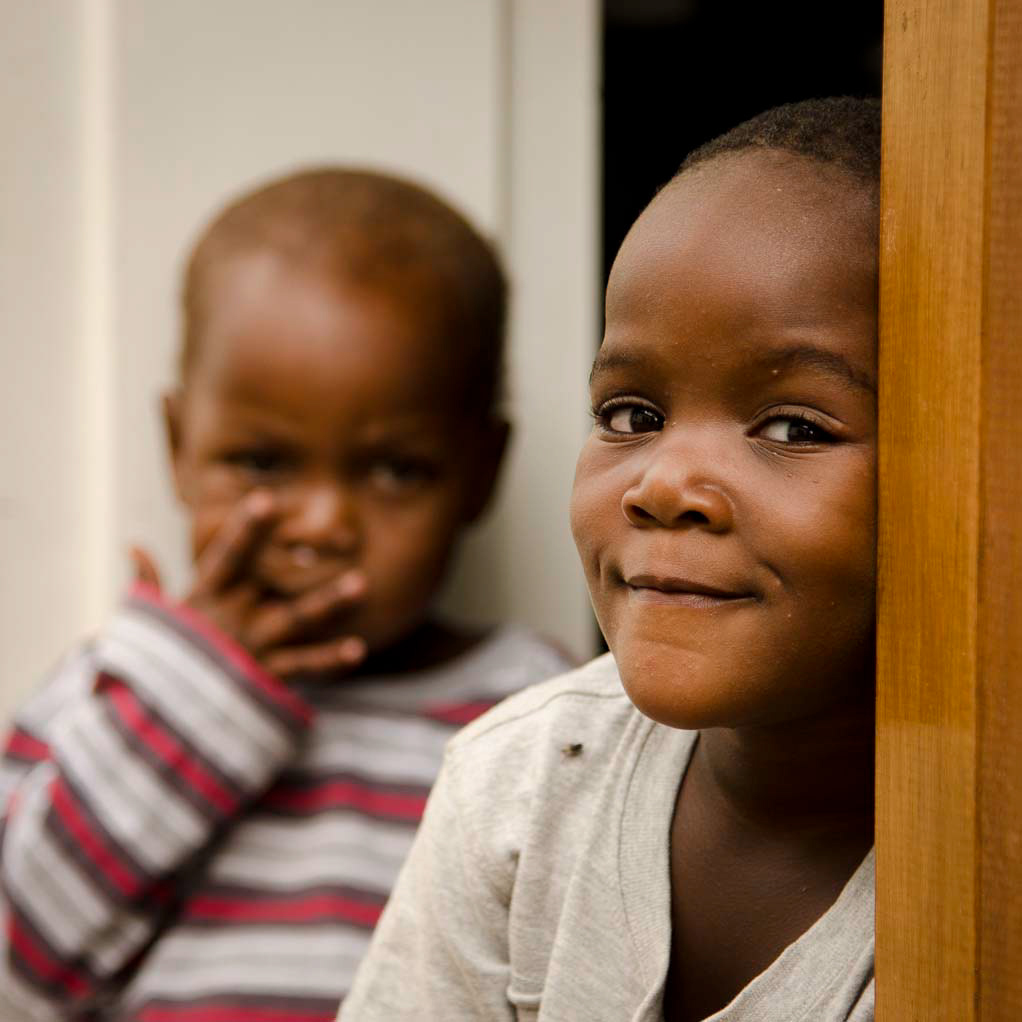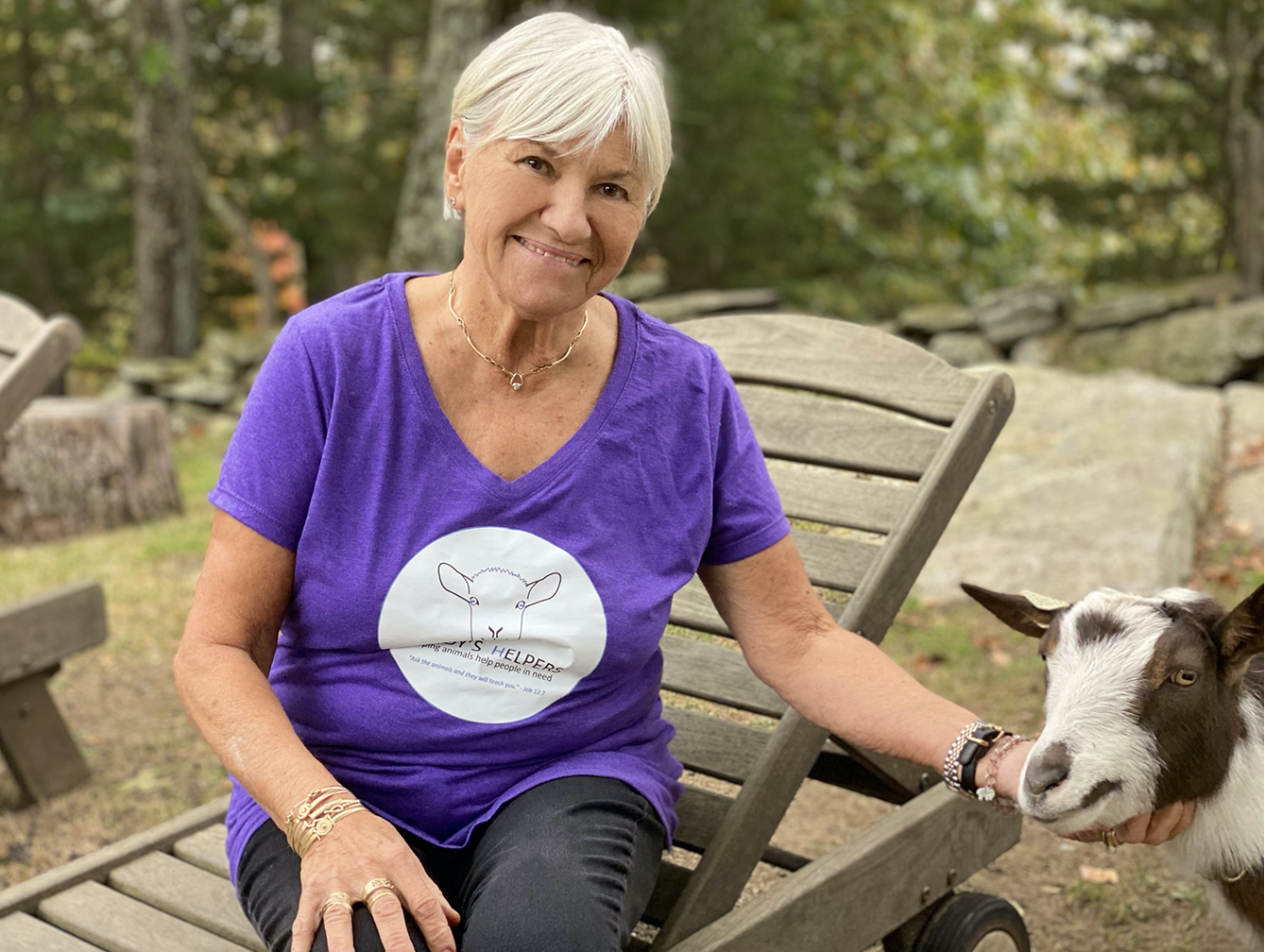
Sandy's Helpers "What about the animals?
It all began because of this question. Whenever humanitarian programs were
being discussed. Sandy Hoekenga would always ask it before the discussions’
end. Incredibly, from such a unpretentious inquiry a mission was born
to assist vulnerable women and their children by helping them towards a
better life by providing them with simple farm animals, goats and chickens
and by doing so, providing them with a way to have a better quality and
independant life.
SUSTAINABLE, CERTIFIED GOAT, CHICKEN, RABBIT, PIG, BEES, & FISH FARMS
OPERATED UNDER THE OVERSIGHT OF THE LEAH FOUNDATION
REGIONAL COOPERATIVES SUPPORTING ONE ANOTHER
GRADUATE PROGRAM TO DEVELOP REGIONAL LEADERS
Become a Sandy’s Helper or learn more about Sandy’s Helpers mission @

